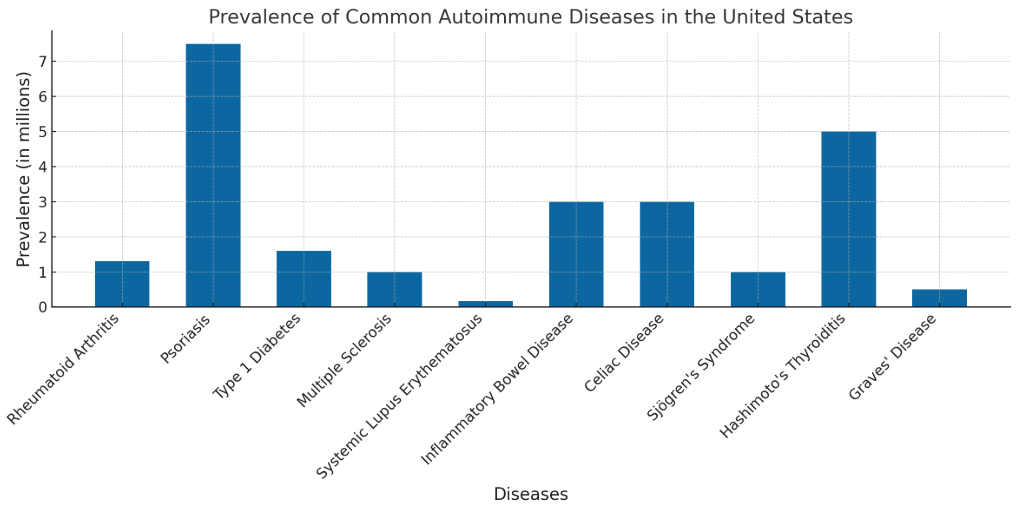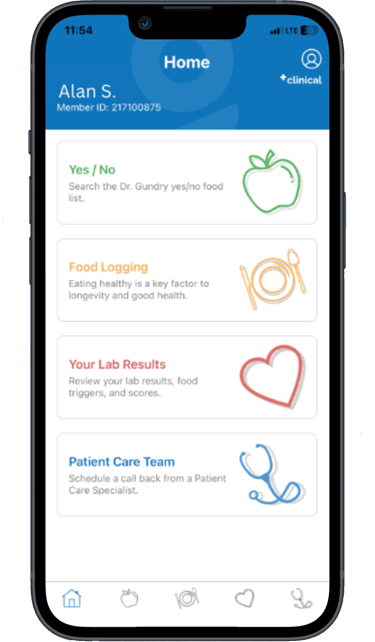”Leaky Gut” is More Common Than You Think—And You Could Be Suffering Without Knowing It
Did you know that many chronic health problems—from bloating and fatigue to joint pain and
autoimmune conditions—could all be traced back to one overlooked issue? It’s called “leaky gut”, and
it affects millions of people without their awareness.
Learn more about the signs of leaky gut, how it is at the root of most autoimmune diseases, and how it’s treated.
Your gut lining acts as a barrier, preventing harmful toxins and undigested food particles from entering your bloodstream. When this barrier becomes compromised—due to poor diet, stress, or other factors—it can lead to a condition known as “leaky gut.”
Symptoms of Leaky Gut May Include:
If any of these sound familiar, it could be your body’s way of signaling a gut health issue.

Through groundbreaking research, Dr. Steven Gundry has created a simple, effective program designed to:
Unlike traditional treatments, this approach doesn’t rely on medications or drastic measures. Instead, it harnesses the power of a carefully tailored diet and advanced gut-support supplements to reverse leaky gut from the comfort of your home.
What’s included?
Care Coordinators will help you track your success throughout the process.
Unique Care
You’ll be assigned care coordinator trained in Dr. Gundry’s unique methods.
Virtual Care Visit
Your care coordinator will review labs and medical charts and provide a personalized treatment plan.
Labs
4 annual blood lab reports, including a 20+ page blood analysis for food sensitivities & more – all at no additional charge.
Mobile App & Web Portal
Provides access to lab data and easy to use food logging to track your progress. HIPAA compliant web portal provides access to your records and lab data.
How is leaky gut diagnosed?
In his private practice, Dr. Gundry always begins with blood work. He looks for specific markers of inflammation and leaky gut, before asking the patient a battery of questions about symptoms, diet, and lifestyle. Once he’s made his diagnosis, Dr. Gundry works with his patients to craft a personalized care and lifestyle routine.
The cure for leaky gut
Take the First Step Toward Healing Today
Reversing leaky gut doesn’t have to be complicated. With the right tools, guidance, and support, you can restore your gut health and unlock the vibrant energy you deserve.
Start Your Gut Healing Journey Now
Click below to learn more about Dr. Gundry’s exclusive program and how it’s helped thousands regain their health and vitality.
Life-Changing Diabetes Management
★★★★★
“Before Gundry Health, managing my diabetes felt overwhelming. Now, my blood sugar levels are stable, and I have so much more energy. Their personalized approach made all the difference. I feel like I’m in control of my health for the first time in years!”
Susan M. | Orlando, FL
Expert Care, Remarkable Results
★★★★★
“Gundry Health’s diabetes program is a game-changer. Their team helped me adopt a treatment plan tailored to my needs, and within weeks, I noticed significant improvements in my energy and overall well-being. I can’t recommend them enough!”
Mike L. | Austin, TX
Regained Control Over My Life
★★★★★
“With Gundry Health’s guidance, I’ve gone from daily struggles to a healthier, more balanced life. Their focus on holistic care and advanced telehealth tools makes managing diabetes so much easier. It’s been a truly empowering experience.”
Karen T. | San Diego, CA
More Than Just Diabetes Treatment
★★★★★
“Gundry Health helped me understand the root cause of my symptoms, and their treatment plan improved not just my diabetes but my overall health. The support team is fantastic, and I feel confident I’m on the right path.”
James P. | Raleigh, NC
Support You Can Count On
★★★★★
“The Gundry Health team provided exceptional support throughout my diabetes journey. From tailored diet plans to regular check-ins, they ensured I stayed on track. My blood sugar levels are better than ever, and I feel amazing!”
Laura B. | Charleston, SC
A Total Health Transformation
★★★★★
“Thanks to Gundry Health, my diabetes is under control for the first time in years. Their comprehensive approach, from personalized plans to continuous support, gave me the tools I needed to succeed. I’m beyond grateful!”
David H. | Denver, CO
Your gut microbiome is a community of “good” and “bad” bacteria. Beneficial bacteria help digest food, manufacture nutrients, and communicate with your immune system. However, an imbalanced microbiome, often caused by sugar and lectin-rich diets, weakens the gut wall and increases the risk of leaky gut.
Leaky gut syndrome, also called intestinal permeability, occurs when the lining of the gut becomes damaged and develops microscopic holes. These holes allow harmful compounds, bacteria, and undigested food particles to “leak” into the bloodstream, triggering inflammation and contributing to health issues, including autoimmune diseases.